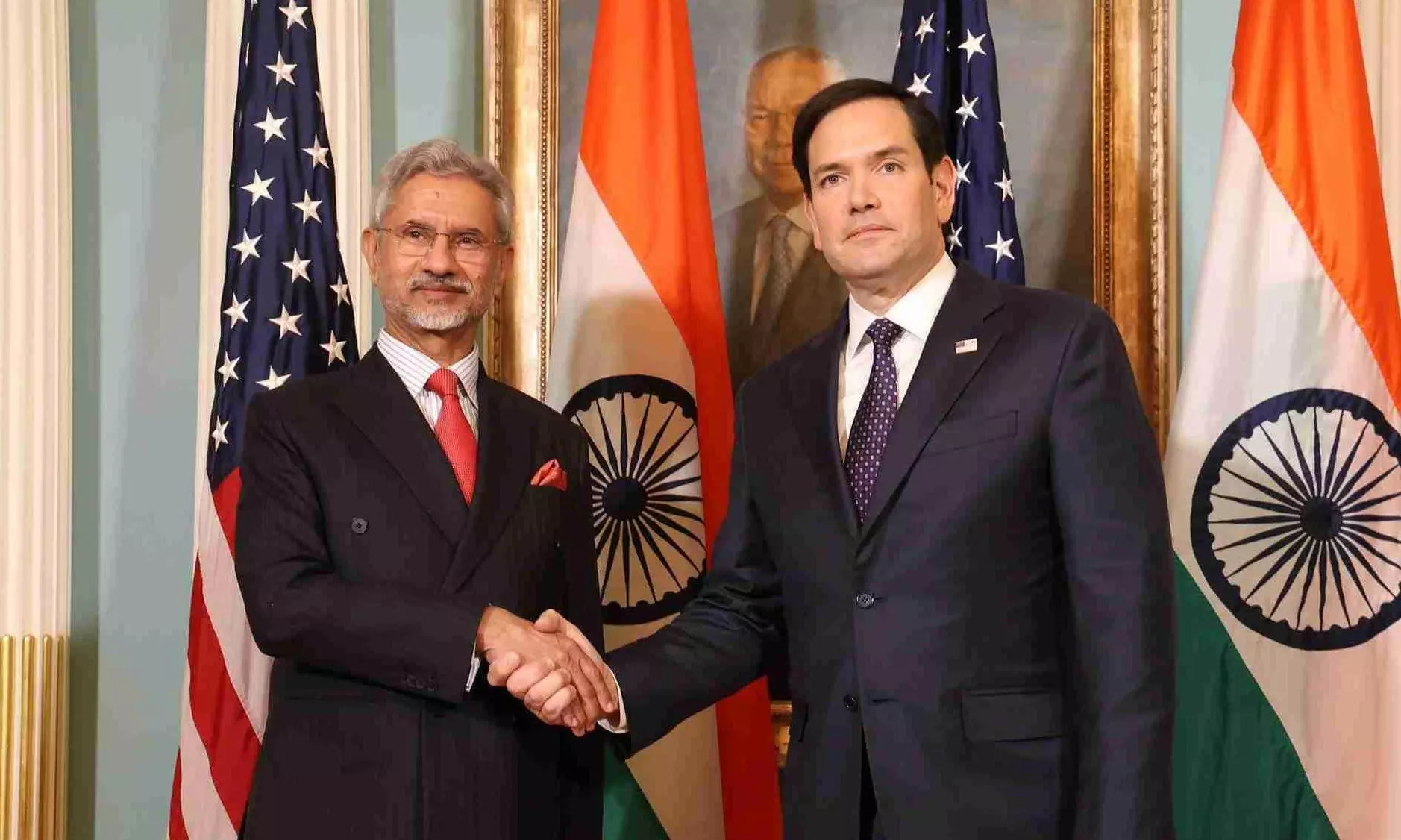
US mission in India reviews foreign aid following Trump’s executive order
Decades-long US development programmes in India face uncertainty as foreign aid comes under scrutiny following a major policy overhaul

The United States mission in India has initiated a review of its foreign aid programmes following an executive order signed by US President Donald Trump on his first day in office.
The order mandates that all foreign assistance must align fully with the US foreign policy. This review is likely to impact long-standing US Embassy and USAID initiatives in India, particularly in sectors such as health, environment, and agriculture.
According to a report by the Financial Times (FT), US Secretary of State Marco Rubio has ordered an immediate suspension of work on most existing foreign aid programmes. An internal cable seen by the FT stated that “new foreign aid disbursements are to be suspended, and stop-work orders issued, pending a review.” A US Embassy spokesperson told The Indian Express, “We are carrying out a review to ensure that our existing grants comply with executive orders.”
Also read: What executive orders did Donald Trump sign on Day 1 in office?
Decades of ties
For decades, USAID has collaborated with India on vital issues through initiatives like Feed the Future, Global Health, and Global Climate Change. Key focus areas include:
Health sector: USAID works with the Indian government and private sector to eliminate preventable maternal and child deaths, as well as tackle diseases like AIDS and tuberculosis. India accounts for 26% of global tuberculosis cases, including a massive burden of drug-resistant TB. USAID has introduced innovative tools like GeneXpert rapid diagnostic machines to combat the crisis.
Agriculture and food security: Under the Feed the Future initiative, USAID promotes partnerships between India, Africa, and the US to share Indian agricultural innovations. These include low-cost tractors, seaweed-based organic growth stimulants, and solar dehydrators aimed at improving yields and farmer incomes across Asia and Africa.
Also read: Trump backs H-1B visa, says US needs ‘competent people’
Environment: USAID supports India’s shift to a low-emission, energy-secure economy through the Partnership to Advance Clean Energy (PACE), which has mobilised $2.38 billion in public and private funding. Projects include smart grids, energy-efficient technologies, and sustainable forest management to enhance carbon sequestration and support livelihoods.
Education: Through the Read, Engage, Achieve, Dream Alliance (READ Alliance), USAID funds projects to improve literacy among low-income, primary school children. These initiatives are led by Indian organisations and leverage private sector support.
Impact of review
As reported by the Financial Times, the review period could last up to 85 days, potentially leaving over $70 billion worth of foreign aid contracts in limbo for three months. The USAID-supported programmes in India, which have made huge contributions to health, agriculture, and clean energy, may face disruptions during this period.
Also read: Explained: All about work, study and tourist visas that US offers to Indians
The outcome of the review will determine the future of these partnerships, which have long supported India’s development journey while fostering collaboration between the two nations.

